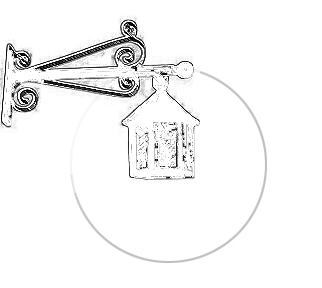You are not yourself. Yourself is someone else, someone comfortable and far away. Someone warm and dry, and safe. Someone sheltered. You are no one, at least no one you know. You have been floating in the ocean for as long as you can remember, hoping to your far away self that the salt water and the seaweed and your sunburnt skin was a dream. But if it is, then maybe you are part of the dream, and will disappear at its merciful end.
You have just washed from the cold ocean onto a burning beach that admits no sign of human life. A ridge of trees waves to you from the crest of a hill; their leaves whisper the promise of further struggle and further pain, and further adventure, and possibly safety from the sun, which now inhabits above and below you with its rage. You must get there, soon.
A petty ridge of water laps at your feet like a faithful dog. Its panting, and the whispering of the trees, and the hissing of your cheek on the skillet of sand underneath you, lulls your eyes closed. The ridge of trees ahead of you stretches further and further away until it is only a shiny finish on a shell. No matter how strongly you want to surge up and race for the trees, you are dragged back into an ocean of exhaustion and memories–of seaweed and salt water, and sea serpents. The earth seems to tilt you off its edge and you fall, fall asleep, and disappear to yourself.
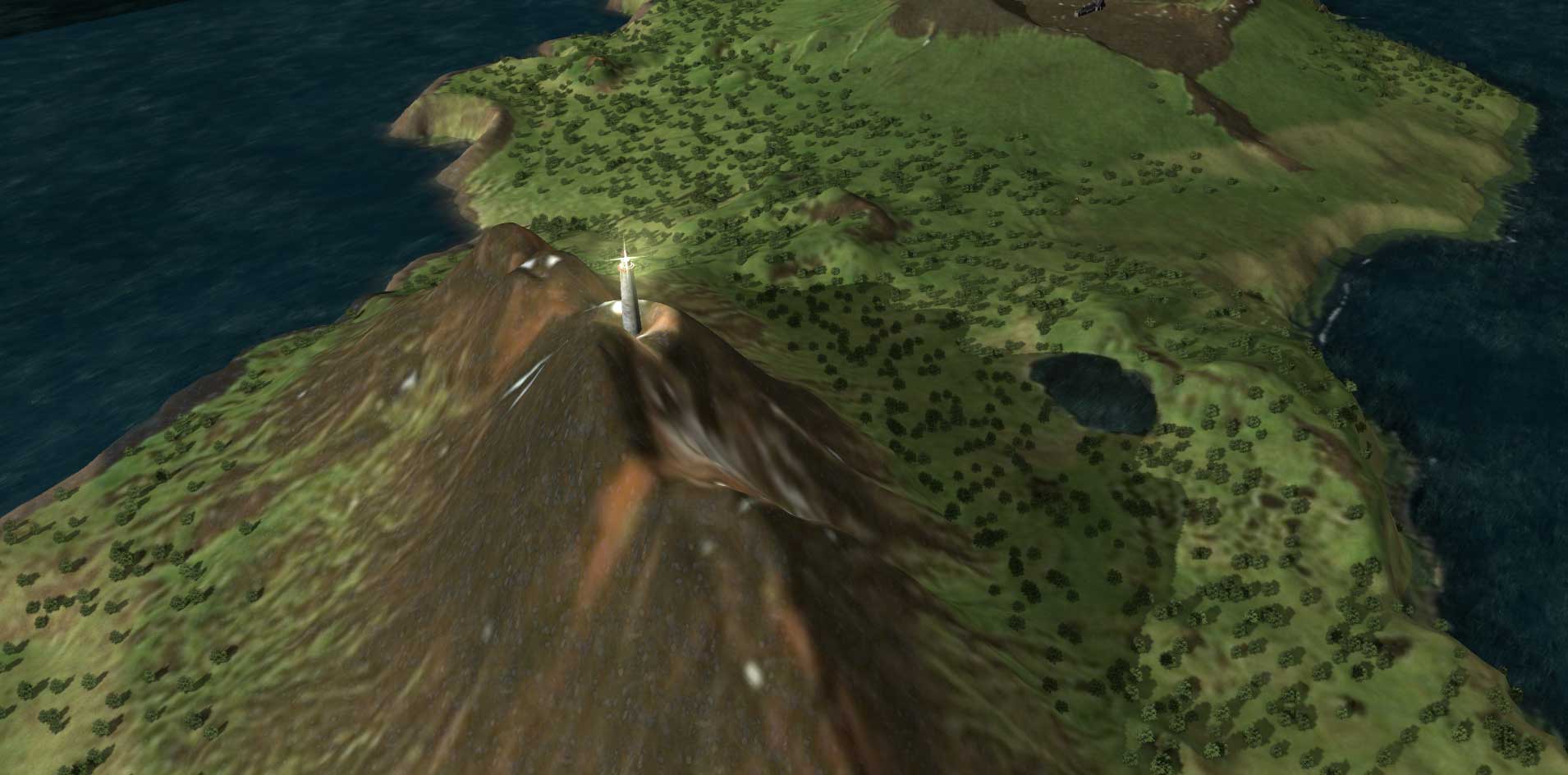
The Romantic Wrong is a fantasy role playing game that interrogates the functional clichés of the genre: a nameless and amnesiac protagonist, a player whose identity mixes with his avatar, and the romanticization of violence. Also: an unnecessarily huge file size.
I want to use an interactive game to explore the paradox that violence is negative and unethical, yet also attractive, and to explore the cognitive boundary between its perpetration and spectation.
At any point in the game, players know, they may quit. This is a right afforded to every player of every game, a right that game designers constantly seek to mitigate. But in The Romantic Wrong, giving up is the only way to win. You put down your sword. Maybe you go live a life somewhere in the sun. You never do violence again, not even against the villainy so evident in the world. Game over. You win. But where’s the fun in that? Where’s the heroism and romance of fantasy without tyrants to topple or monsters to slay, especially when the main character is oh-so-good at it?
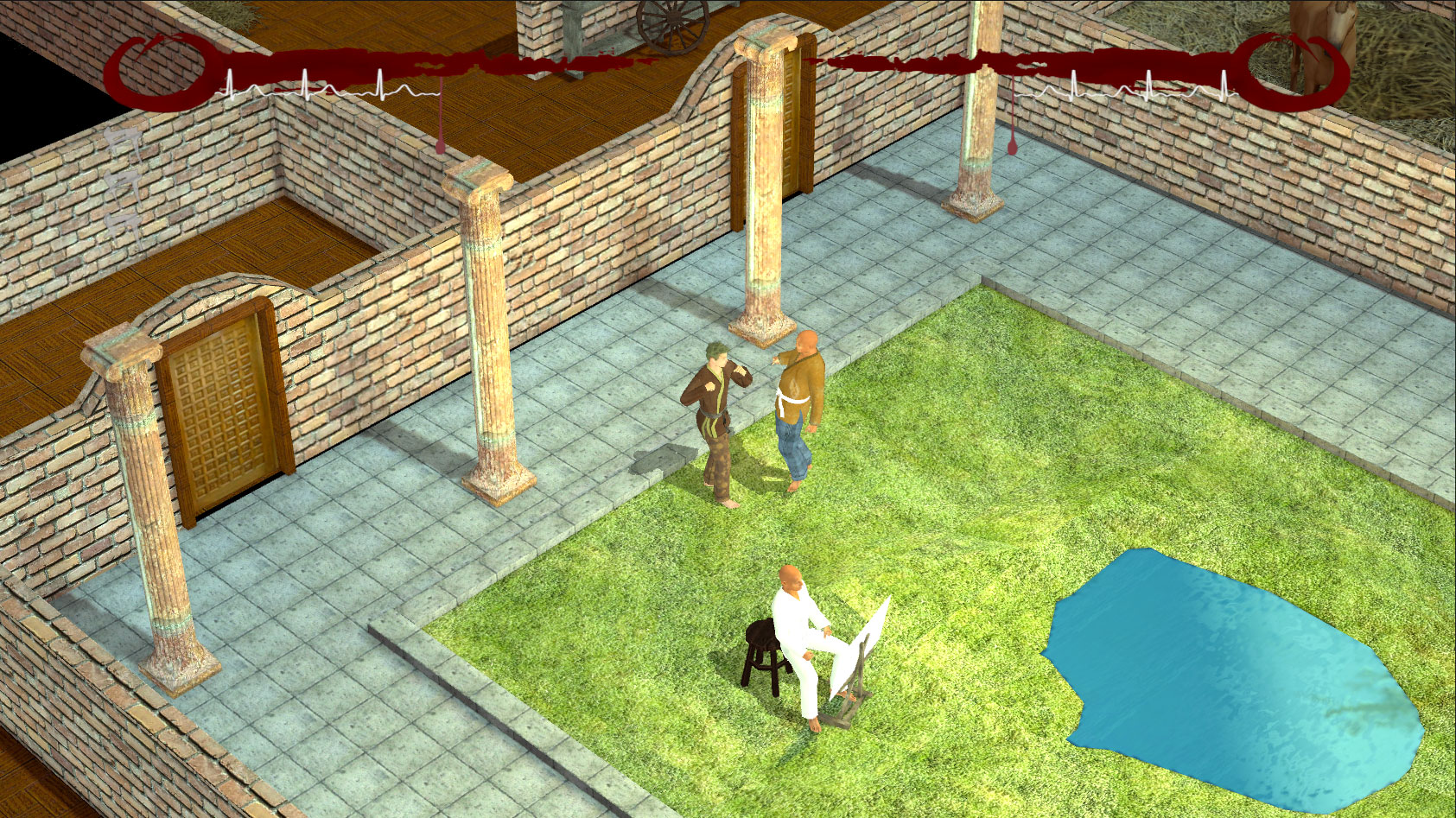
But doesn’t being good at killing make you a monster? The more you try and right the world by swinging your sword, the less peaceful a place it becomes. The oppressed vassals of a dictator embrace you as his replacement because they’ve learned that might makes right; a bandit who dies trying to ambush you in the woods leaves mouths to feed; when you precipitate a just war, many people will be injured or killed never knowing the cause.
The player is romanced deeper and deeper into violence. Choose from five distinct martial arts styles to use against his enemies: katana, sword and shield, knives, quarterstaff, and open hand. As you fight, you become more flexible, allowing more variation in your character’s abilities, which include power, skill, speed, stamina, focus, and accuracy. Learn new “attitudes,” which effect your character’s stats and provide special abilities, and find newer, better techniques and weapons in a world that revolves around them.
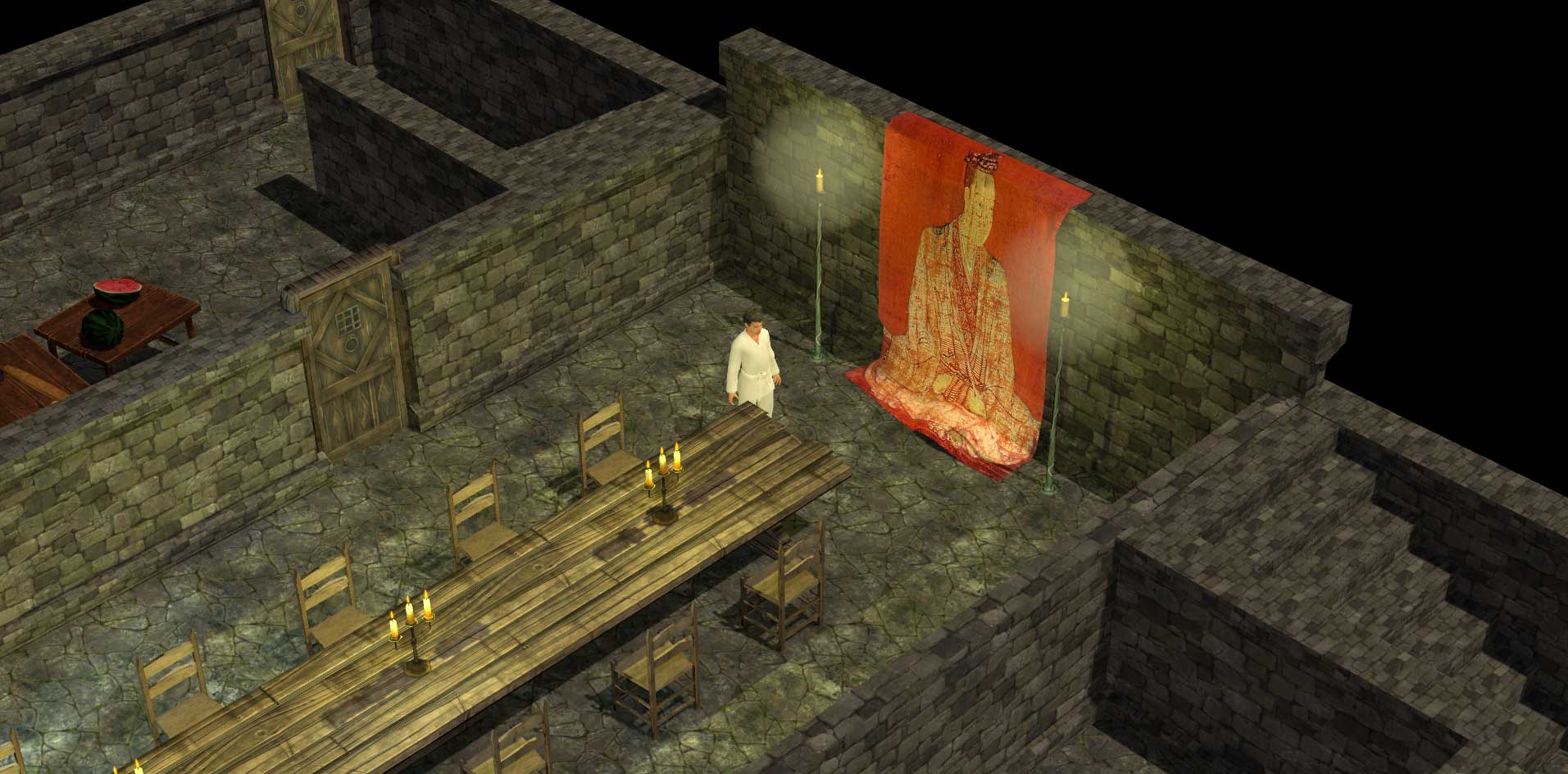
The game is architected around deep, parser-based conversations with complex characters. Conversations are automatically updated with new content based on unrecognized attempts at dialogue, creating a pen and paper role playing experience that is still story based and single player.
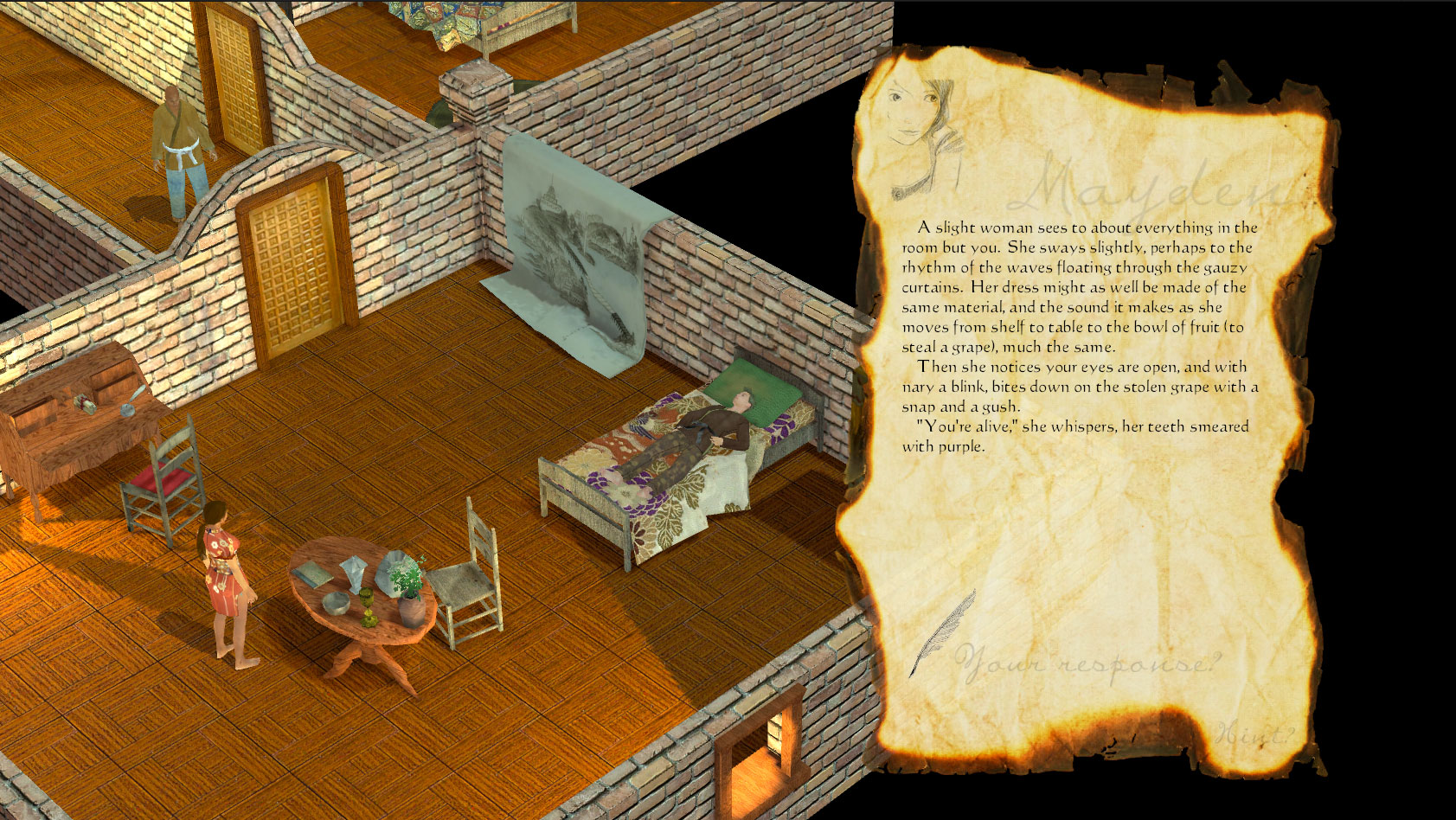
The images above are all from alpha versions of the game. The Romantic Wrong is being prepared as a “vertical slice” work sample for submission to publishers and developers, and is being built in Unity for a variety of platforms.
